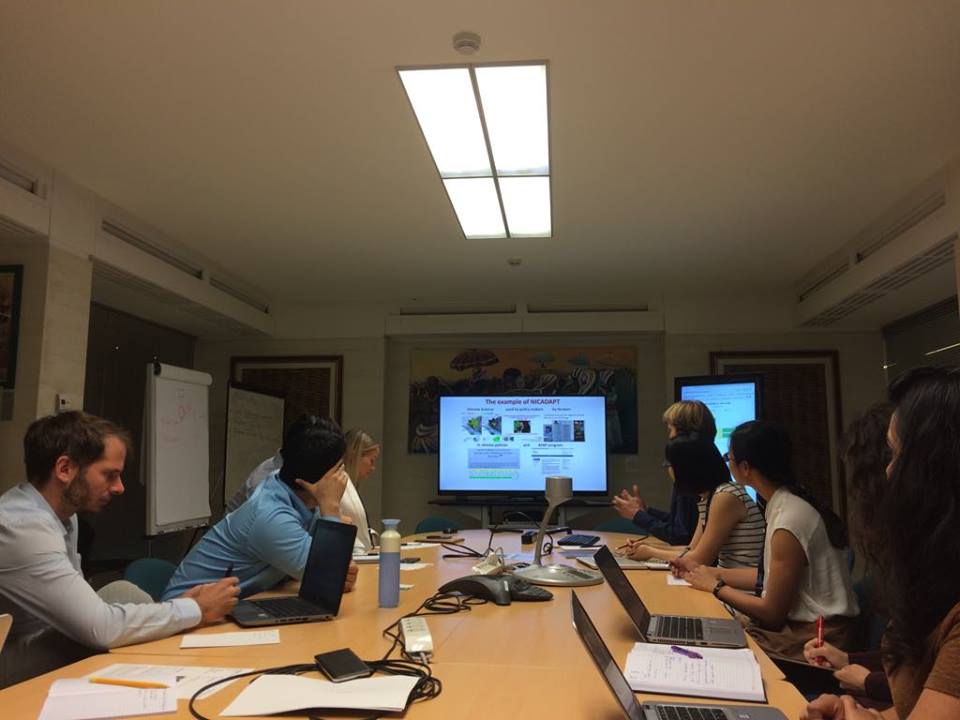The exciting thing about working at IFAD is that there is always something exciting happening. Which provides an opportunity to learn and network.
Last week our division- Environment, Climate, Gender and Social Inclusion (ECG) hosted a change lecture titled: “Solid research for solid programming”. The lecture was co-organized with the International Center for Tropical Agriculture (CIAT), the guests were:
Peter Läderach holds an Msc in Geography and a PhD in Tropical Agriculture. Peter is currently the theme leader for Climate Change at the International Center for Tropical Agriculture (CIAT). Peter’s passion is conducting research that leads to visible impacts on the ground, that is why his research supports private sector, NGO’s, governments and multinational agencies to take evidence-based decisions and deliver impact on the ground.
Le Nghiem is a research associate in the field of ecosystem services and climate information services Asia office in Hanoi, Vietnam. Le holds an MSc from the National University of Singapore and has broad research experience in the fields of climate risk vulnerability assessment in rural landscape, ecosystem services modelling, and sustainable consumption. She has authored 10 research papers in peer reviewed journals.
The lecture was on determining how Agriculture Research for Development (AR4D) efforts effectively support IFAD’s programming needs.
What stood out for me in the lecture were the strategies used to engage with the private sector, these included:
- Development of new enterprises/support to start-up businesses to be run by capable individuals or farmer groups in the community
- The enhancement of existing micro-small-medium-sized enterprises (MSMEs)
- Leverage investment of non-MSMEs
- Leverage resources from microfinance institutions (MFIs) and Commercial banks
It is interesting how IFAD investments plays a role in helping large private corporations direct their investments in a way that enhances inclusive development of rural communities. These engagement strategies are also helpful in defining strategies to engage rural communities. The study was published in The Business Advantage which provides further details on the findings.

